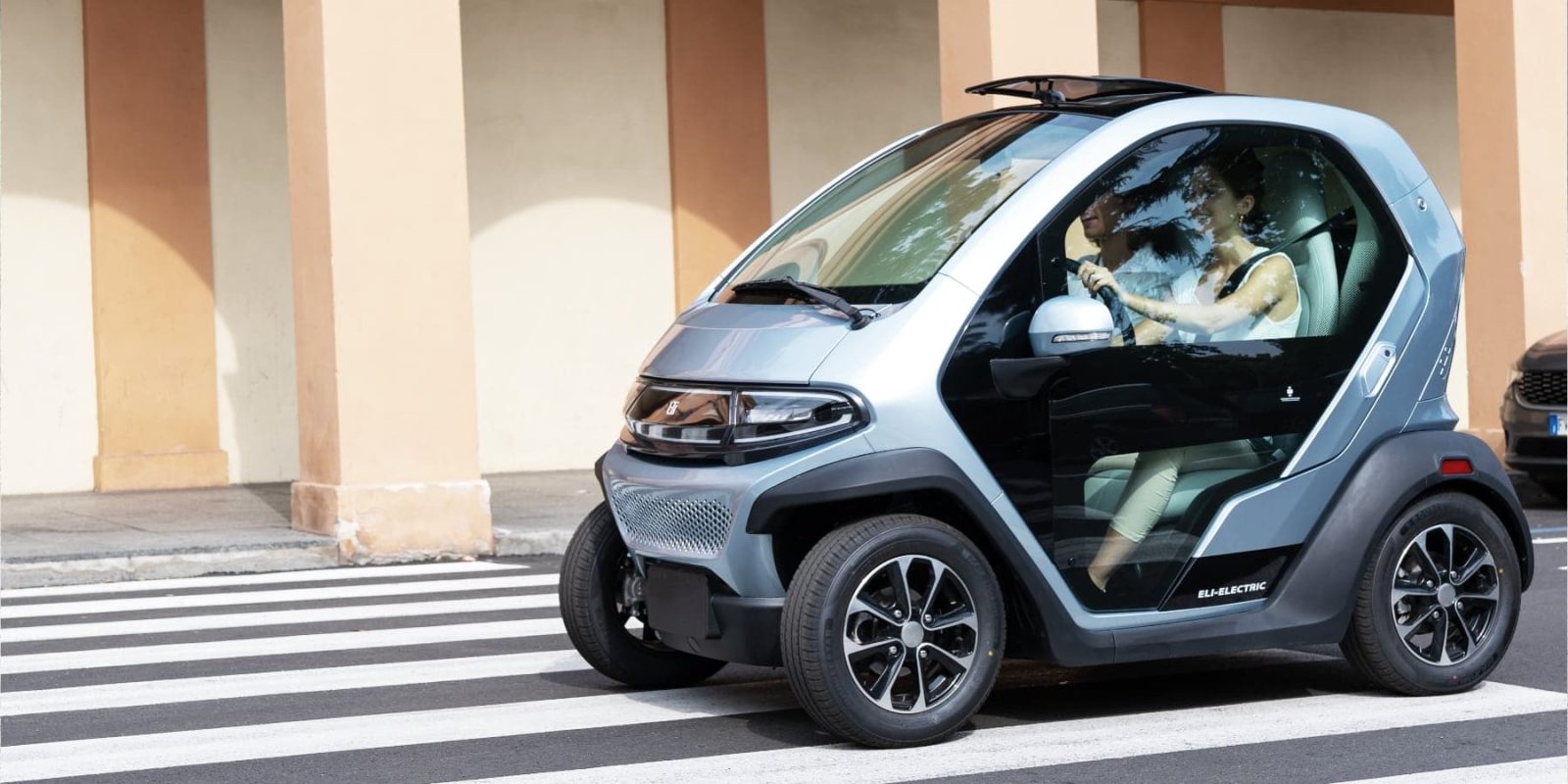
Eli Electric, the manufacturer of the popular Eli ZERO electric microcar, announced this morning the opening of reservations in the US.
Microcars, often referred to as quadricycles in Europe and Low-Speed Vehicles (LSVs) or Neighborhood Electric Vehicles (NEVs) in the US, are a niche category designed largely for urban travel. Many new automakers in the category have failed to gain traction, often selling mere dozens of units.
But the Eli ZERO has so far proven popular in the markets it has already launched in across Europe and Asia, with hundreds of models already on the streets (did I mention the ‘niche’ thing?).
Now the pint-sized EV maker is bringing the Eli ZERO to the US, opening up $200 refundable deposits to reserve the $11,900 vehicle. Deliveries are expected to begin in Q3 2024, so it looks like reservation holders won’t have to wait very long.

The model heading stateside is an upgraded version designed to meet the National Highway Traffic Safety Administration’s regulations for LSVs, allowing it to be street-legal at the federal level. That permits owners to operate it like a traditional vehicle, but only on roads posted up to 35 mph (56 km/h). In other words, most roads in most cities.
Eli has now boosted its production capacity to 4,000 vehicles per year and will use a dealership model to sell and distribute its ZERO vehicles in the US.
As the company’s founder and CEO Marcus Li explained:
“Our goal is to transform urban trips, empowering riders to reconnect with their communities through compact and agile EVs that allow for a better utilization of urban space, reduced congestion, ease of parking and ultimately an improved quality of life in cities. Introducing the Eli ZERO to the U.S. market, we’re not only riding the wave of an emerging mobility revolution, but also redefining personal vehicles in an innovative way that benefits both traffic and the environment.”
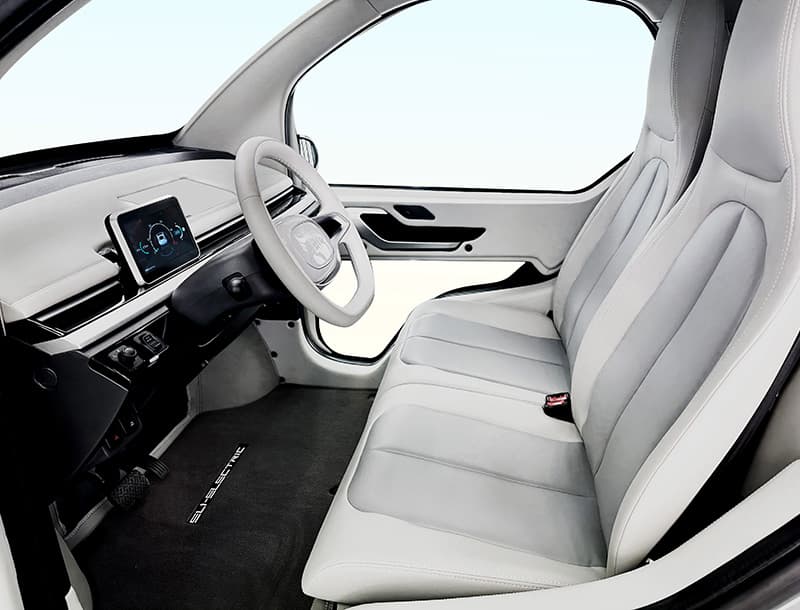
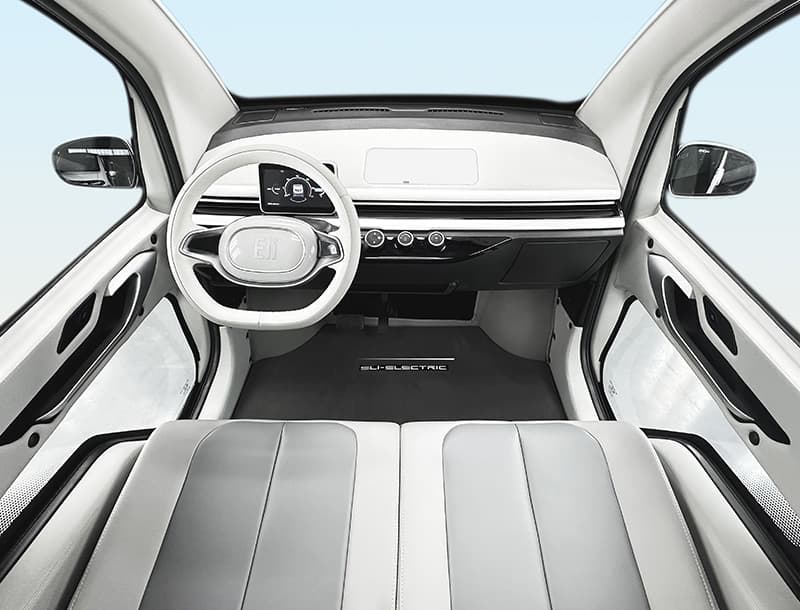
The two-seater vehicle features a rather large battery, at least by LSV standards. The 8 kWh LiFePO4 battery for the European model is rated for up to 60 miles (100 km) of range, but the company announced that the US model will receive an even higher range of 90 miles (145 km), presumably meaning the vehicle will feature a larger battery.
The 3.2 kW on-board charger can recharge the vehicle in under three hours on 240VAC, or under 5 hours on 120VAC.
The top speed is limited to 25 mph (40 km/h) to comply with federal regulations for the vehicle class.
In addition to two fairly traditional car seats, there’s a 160L (5.6 cubic feet) trunk for storage in the rear. That’s not exactly a huge trunk, but it’s not a huge vehicle, either.
The length of the ZERO is just 88 inches, which is actually shorter than the width of a GMC HUMMER EV. Not only could it park nose-in within the same spot a HUMMER parallel parks in, but you could fit nearly four Eli ZEROs in that same parallel parking spot. Or to translate that into something that actually matters to most people, you could park a ZERO in that corner “not a spot” at the local grocery store, daycare, yoga studio, or wherever else driving an SUV would be overkill.

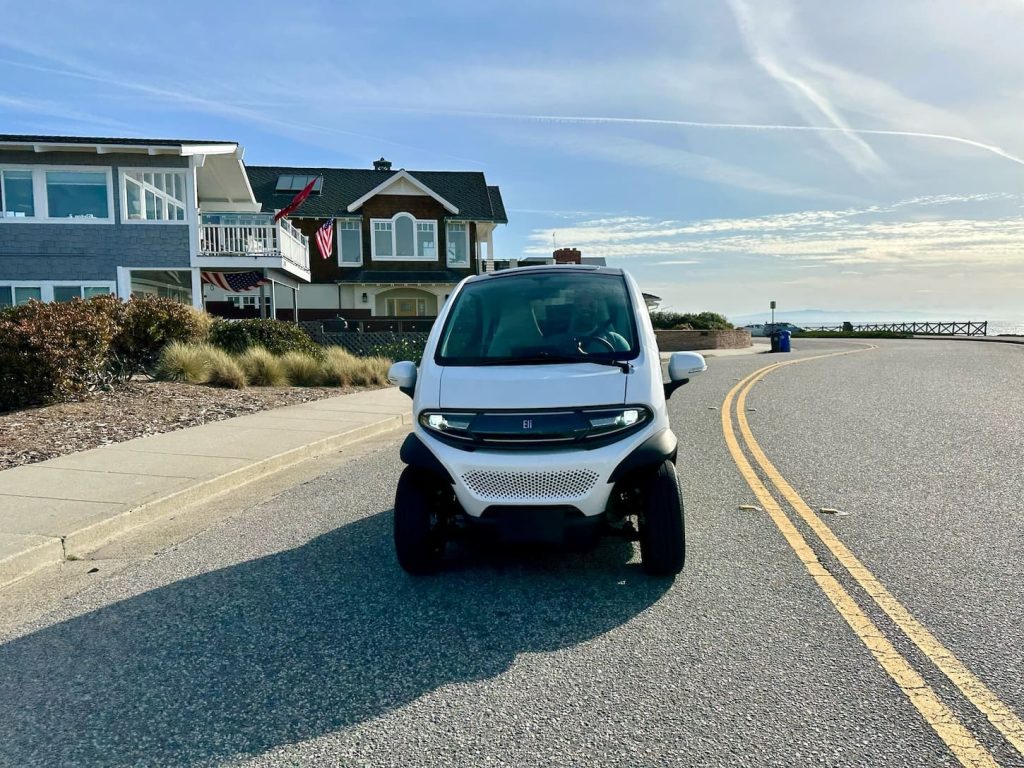
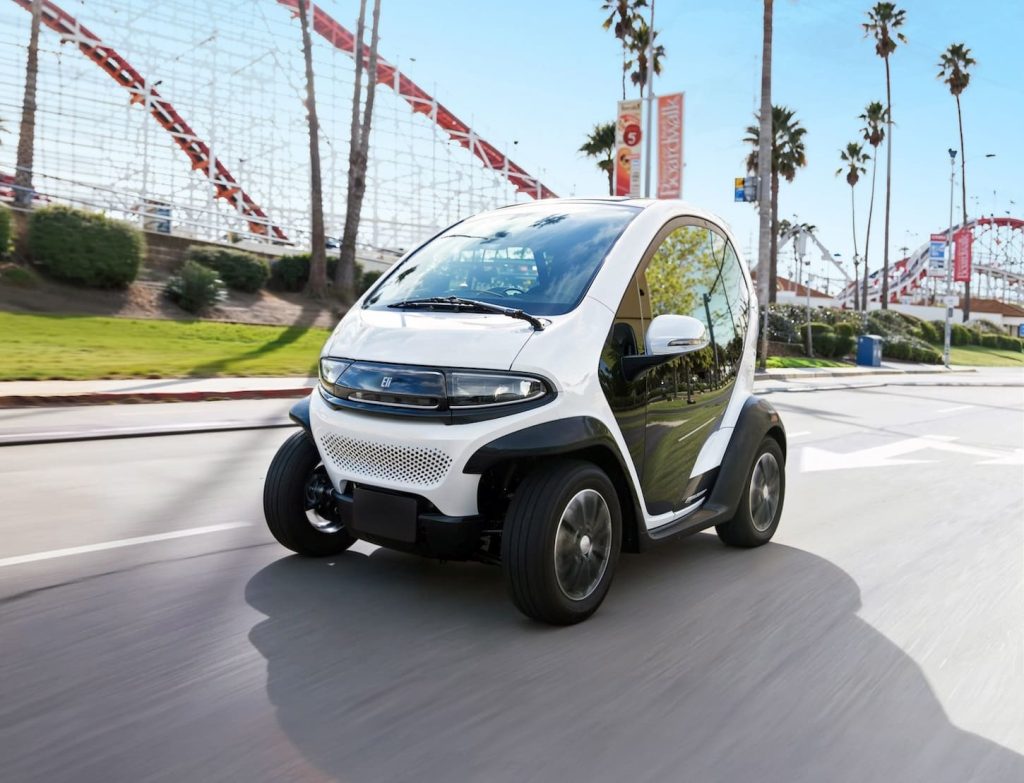

While the Eli ZERO is not technically a car, it still features many car-level features such as heat and A/C, keyless entry and start, power steering, anti-lock brakes, electronic parking brake, rearview camera, radar sensors for parking, tilting sunroof, and an optional Sony infotainment center with CarPlay and Android Auto.
That means that it feels and drives more like a traditional car, at least until you hit the 25 mph speed limiter.
In addition to the current list of features, the company says that ahead of the official launch later this year, it will announce several innovative new features that “will be a first in the LSV industry.”
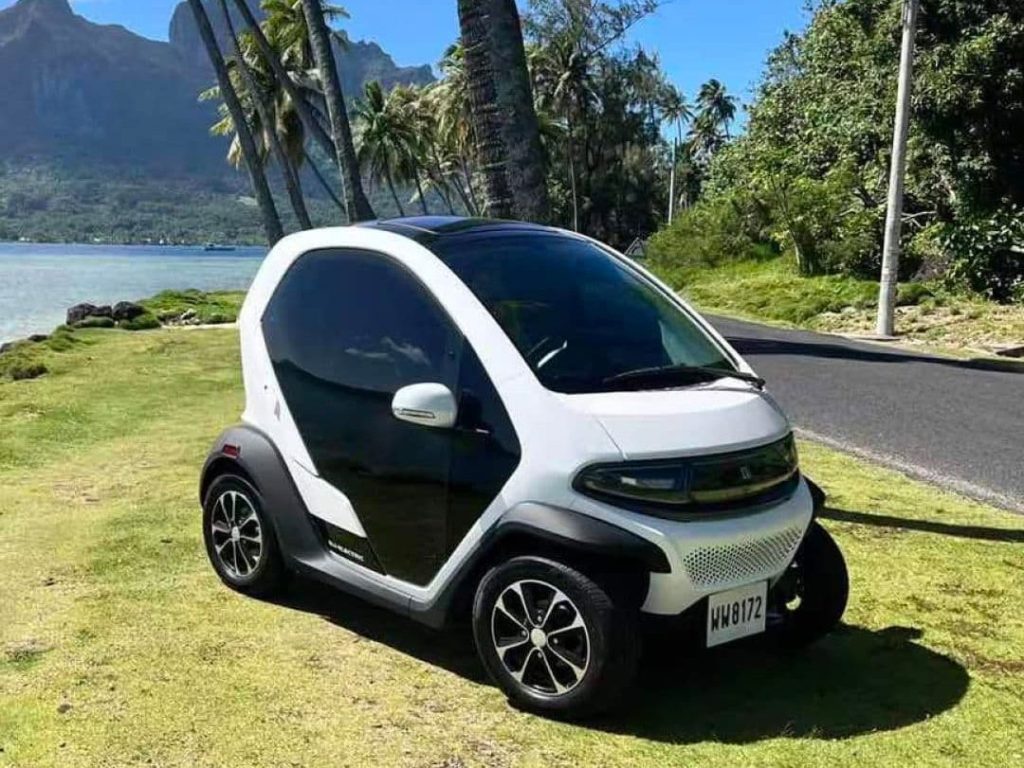
Electrek’s Take
In my opinion, the proliferation of LSVs in the US can not come soon enough! While there are a few options, they’re still quite limited in number and variety.
These handy vehicles are exactly what this country needs: the antidote for an epidemic of oversized SUVs and ego-extenders. Not only are they more convenient to drive and park in cities than full-size vehicles, but if the old adage about big vehicles being used for “compensation” is true, then there’s no better wingman than rolling up in a tiny car like this.
I actually had a chance to take one of the first rides ever in the Eli Zero before it began sales back in late 2021 while visiting Italy. I was surprised to see just how roomy it felt inside despite the small footprint of the vehicle. I took a more recent test drive the next year along with the company’s founder Marcus Li, who explained to me that it’s the transparent door design that helps create that spacious illusion, removing the cramped feeling that many micro-cars suffer from.
The funny thing here is that I can already tell you what the detractors are going to say: that it’s an overpriced, glorified golf cart. And I can already tell you how hilariously wrong they are. First of all, it’s cheaper than average golf cart these days (if you don’t believe me, do a quick internet search for golf cart dealers in the US and look at the shocking prices). And secondly, this is way nicer than a golf cart, offering features like air conditioning, parking sensors, and keyless entry/starting.
Sure, it’s not going to meet the needs of a family of four taking their kids to a soccer game in the next town over, but it’s not meant to. It’s meant for folks who just need a one or two-seater and live in a city. I’d already have my name on the list if I was in the US more often (it wouldn’t be my first or even my second micro-EV I’ve had in the US). I mean, why not? I’d have all summer to think of a way to justify it to my wife!

